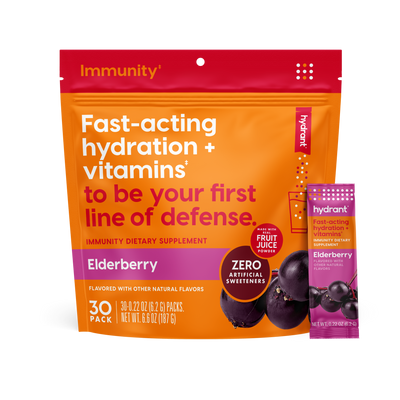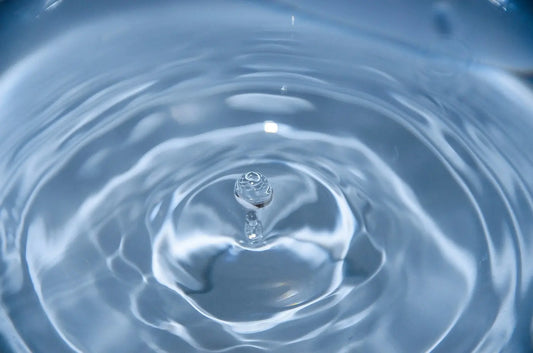No matter the season or your activity levels, water is an essential accompaniment to your day. Those who are active in sports and those who work outdoors should always have extra water with them anyway, but how many people ever question why? We all know that we need water to live; we are, after all, made up of water. However, have you ever thought about what water is doing for your body while you are active or in the sunshine? Have you considered how your body functions without the correct amount of hydration?
Choosing to consume the right amount of water every day will help your body to regulate its temperature. Not only that, but water can work to increase your cell function and move the right nutrients to your body and brain. If you miss out on the right amount of water, all manner of symptoms begin to present themselves, and your body doesn't keep control over all the functions that water usually soothes.
In this guide, we're going to discuss everything that you need to know about dehydration. We're going to talk about what it is, how it feels, what the causes are and how you can treat and prevent it. Picture your body as a well that requires lubrication, balance, and the removal of waste. Dehydration is what happens when that well is devoid of water, and you can avoid it.
Let's dive in!
So, Exactly What Is Dehydration?

When you are working out, sitting outside, busy to the point you forget to take a sip of water—your body will lose more fluid than you are drinking. This is the moment when dehydration occurs. The water content in your body has to remain at a specific level if you want to avoid the symptoms of dehydration, and when this content level goes down, your salts and sugars in your body become unsettled. This has a direct effect on the way that your body functions, and when water makes up over two-thirds of a healthy body, you need it to function correctly. If you ensure that your body stays regular, your electrolytes remain stable, and your fluid levels are preserved.
When these mechanisms fail, an imbalance occurs that can threaten your life in the extreme.
Water doesn't just keep our thirst quenched; it keeps our joints supple and our eyes lubricated [2]. It helps our organs to digest and helps to remove the body’s natural waste products, preventing a build-up that leads to internal poison. As well as all of these marvellous things, your skin remains healthy and moist, your energy levels stay up, and your urine stays healthy, too.
All About Balance
If you are sweating out more fluids than you are taking in, you get a classic imbalance. Dehydration can develop when this imbalance occurs, and while most people think that they'll be fine if they forget their water, they'd be wrong. Any activity of any kind that raises your heart rate, whether indoors or out, can cause your body temperature to rise. This has a knock-on effect with your sweat, which increases.
As you sweat, you need to keep up your water intake to keep that balance from tipping. Without enough access to water in these instances, the body gasps for liquids. As long as you are maintaining the balance in your fluids and electrolytes, you are going to be able to hold off the symptoms of dehydration and keep your body as healthy as possible.
What Causes Dehydration?
This is not going to be an exhaustive list. What causes dehydration for one person won't be the cause for someone else, but the most common link to dehydration is the fundamental lack of drinking enough water [3]. Most of the time, healthy adults should be drinking between six and eight glasses of water per day [4]. When thirsty, the act of drinking water is usually enough to quench it. The rest of the time, dehydration can be caused when your body is letting go of water, and this happens in a variety of ways, including:
Sweating
Sweating when overheated or during a workout/overexertion/carrying heavy equipment. We sweat most when our heart rate is high, and fever can do this as much as being in the heat outdoors [5]
Episodes Of Illness
Most people experience dehydration when they are ill as the fluid in their bodies is lost very quickly as the body cannot hold onto it, whether through diarrhea or vomiting.
Emotions
Excessive crying can dehydrate you with enough tears, as you are losing water. During those times where life is hard, and tears are regular, dehydration can occur.
Alcohol
Everyone loves a glass of wine or two, but not everyone realizes that alcohol is a diuretic. A diuretic makes you urinate far more frequently, and the after-effects of alcohol–namely a hangover–indicates that your body is severely dehydrated and needs fluids.
Diabetes
People with diabetes often find out that they have diabetes when symptoms such as frequent urination and excessive thirst present. The risk of dehydration as a person with diabetes is higher, due to the higher levels of glucose in the bloodstream. The kidneys of a person with diabetes try to rid the body of the glucose by the formation of urine; which then can cause dehydration. [6]
Losing more fluid than you take in and not replacing that fluid can cause dehydration to set in. As well as this, the extreme climate, the exercise that you are doing and even your diet can have an impact on your hydration levels. If any of these situations are occurring for you, then regularly replacing those lost fluids is the answer. You don't have to wait for hot weather to lose fluid through sweating, either, and you have to pay attention to what is going to make you sweat and combat it before it becomes a problem.
Dehydration: Who Is At Risk?

Absolutely anyone of any age, any physical ability and any gender can become dehydrated. However, there are groups of people who are more at risk of dehydration. These groups include:
Babies & Young Children
The naturally lower body weight of a child means that they are more sensitive to even the smallest amount of lost fluid. [7]
Seniors
In seniors, there is less awareness that they need to continue drinking fluids. It's particularly common in those with neurological symptoms such as dementia; they are less aware that dehydration is occurring.
Health Conditions
As mentioned up in "Causes", those with diabetes or alcoholism are more likely to deal with issues pertaining to dehydration than others.
Athletes
During perspiration, large amounts of bodily fluids and electrolytes are lost through sweat, mainly when working out for long periods.
What Happens When Your Body Gets Dehydrated
It's essential to understand how the body responds to dehydration if you hope to combat the symptoms before it becomes too hard to manage. When you feel that pull of thirst, your body is already dehydrated and asking for moisture [8]. The feeling of thirst is a little behind the real hydration levels in our bodies, which can lead to a 'gasping' for water. There has been a lot of research done on the effects of dehydration and the human body, and it can just take 1% of dehydration in the body to affect everything from mood to motor coordination [9].
The loss of water doesn't mean you are losing salt and potassium from your body, but it does mean that your salt levels then rise [10]. The lack of water in your body starts to have an impact on the way it functions, especially when dehydration becomes severe. Sweating helps us to regulate our body temperature, but we cannot sweat when we are dehydrated, which prevents us from being able to manage that balance with body temperatures [11].
Natural Waste Product Removal
Being adequately hydrated is essential for waste removal [12], as without water, our kidneys have to work overtime to try to do their job. Our kidneys regulate the process of natural waste products made by our body [13], and over time, kidney stones can form, and the more severe, kidney disease can be a result of dehydration. When we lose too much water at once and don't work to replace it, our blood will become more concentrated [14] and triggers the kidneys to retain water instead of pump out the toxins, which leads to fewer incidences of urination. The thickening in the blood then leads to heart trouble.
Heart Health
Our hearts keep the blood pumping around the body, and when we don't have the adequate amounts of water in us, the heart works even harder to pump blood [15]. This can lead to more stress and higher blood pressure in the long run. Thicker and more concentrated blood challenges the cardiovascular system to work harder, which then leads to exhaustion and the danger of passing out increases.
What Are The Signs Of Dehydration?
Dehydration in one person won't look the same as in another, and it can be from mild to severe. It all depends on how much of your body weight has been lost through the water. There are two undeniable and early signs of dehydration [16], and that's the triggering of thirst and your urine darkening in color. Your body does this to try and increase your water intake while at the same time, trying to slow down the loss of water.

There are other symptoms of dehydration that you need to be aware of if you hope to catch those symptoms as they happen. These include:
- Dizziness and lightheadedness
- Thirst
- Headaches that start lightly and build
- Muscle cramps
- Mood changes
- Extreme tiredness and lethargy
- Skin changes
- Dry lips and mouth
- Scratchy, dry eyes
- Heart rate changes
- Infrequent urination
- Loss of strength or stamina
Let’s explore some of these signs in more detail:
Extreme Thirst
This is the most basic sign that you are dehydrated. Your mouth becomes dry, and your eyes follow suit, but the thirst was evolution's way of telling us to search for water. Your physical and mental performance are likely already affected if you are feeling thirsty, and this is exacerbated if you are outdoors in hot weather or you are athletic in nature. Feeling thirsty can be ignored but only for some time—and you shouldn't ignore it! [17]
Muscle Cramps
Our muscles contract involuntarily when we are dehydrated. We have written a blog on muscle cramps in more detail on our website, but in a nutshell, the lack of water and electrolytes being depleted quickly can cause muscle cramps. Water is essential for our muscles to remain healthy, and drinking water while you work out can prevent those cramps that you hate. Our bodies are very clever in the way that it tells us to drink more water, but if we're not paying attention, it's hard to manage. [18]
Frequency Of Urination
You can watch your urination patterns to learn about your body and its level of hydration. When you aren't adequately hydrated, you'll notice your urine becoming darker and cloudier–it also smells terrible. Hydrated urine is pale yellow or completely clear.
Headaches
Headaches can be debilitating, and they happen for a number of reasons. However, when you are dehydrated, your headache is a different kind of pain. You'll know if you are suffering from a headache due to being dehydrated if you drink water and within 15 minutes, you're feeling much better again.
Fatigue
Tiredness happens for a number of reasons, but dehydration is one of the biggest causes. Stimulants like coffee and tea won't help if you are dehydrated; it's just water that will help here! [21]
Mood Changes
Feeling irritable can be led by life, but it can also be a sign of dehydration. Our brains rely on a steady supply of water to be able to function properly. Without the right fluids, confusion and mood changes can follow quickly.
Skin Changes
Did you know that there is a simple test on your own skin to see if you're dehydrated? Pinch a piece of skin on your arm (gently!) and see how quickly it snaps back into place. If it doesn't go back to the right shape immediately, there's a chance that you are dehydrated. Lack of water can change the level of elasticity in your skin.
Change In Heart Rate
We mentioned the change in pulse, but a heart rate speeding up is another way to pinpoint your hydration levels. Dehydration can increase fluttering in your chest, heart palpitations, and more intense beats. You can avoid this, simply by drinking enough water.
Each of these symptoms can happen together at the same time, but you should be able to reverse those symptoms by drinking more fluids—just not too quickly! Chronic dehydration [22] does occur in some, and it can affect the function of the kidneys and increase your risk of developing kidney stones. Not only that, but prolonged dehydration can also lead to constipation and muscle damage.
When You Should Consult Your Doctor
There's always a risk of dehydration moving from mild to severe [23] in anyone, as there isn't a clear-cut timeframe where you should feel healthy again. You should be consulting with a doctor if—despite upping your fluid intake –your symptoms of dehydration continue. There could be an underlying issue at play. You should also speak to a doctor if you believe that a child or baby is dehydrated—they are not able to regulate their fluids alone. [24]
If your doctor believes that dehydration is at play, you could be given a blood or urine test, which works to check the balance of the potassium and salt in your body.
When Dehydration Is Severe
When you do nothing about symptoms of dehydration, it can quickly become an emergency situation for you. Severe dehydration requires immediate attention, and contacting your doctor with the following signs could lead to a stay in hospital and fluids:
- Lethargy you cannot shake that comes with confusion
- Dizziness that lasts
- Lack of urination for more than eight hours
- Weak pulse or rapid pulse—whatever is abnormal for you
- Seizures
- Unable to remain conscious
Dehydration that is severe and not treated can be complicated to fix, leading to a hospital stay and drip to administer and replace fluids. [25]
How Do You Treat Dehydration?
[26] It sounds simple, but the best and most effective way to treat dehydration is to rehydrate the body as soon as possible by drinking fluids. Water is the best option, but diluted juice can do the same job. Sweet drinks can help you to replace lost sugars, with salty snacks replacing lost salts.

Infants and Children
Dehydration in younger children and babies can prove harmful very quickly [27], so they need to see a doctor as soon as possible. Regular feeds of breastmilk or formula in smaller amounts frequently is the best option to ensure that the fluids stay down. A child only needs frequent sips of water, and if this isn't staying down, the best option is oral rehydration solutions in the water.
More water shouldn't be given to little children due to the fact that it can dilute their minerals in their bodies and make the situation worse.
Oral Rehydration Solutions
We've mentioned oral rehydration solutions, and products like Hydrant can help. It's got an electrolyte balance that mirrors your body’s own when you are at your best. A little sugar turns on the sodium glucose pump which speeds up hydration. Real fruit juice provides a light, refreshing taste and you can re-establish the right balance of body fluids again. [28]
Who Should Drink What to Rehydrate?
[29] Rehydration doesn't have an age restriction, but it's essential to learn which fluids to turn to for which age group if you suspect you or someone you know is suffering from dehydration. Let's take a look:
Infants & Babies
Babies don't rehydrate in the same way that we do. Instead of giving them water (which they do not need before six months), babies should have an increase in the number of feeds they have. Under the guidance of a doctor, oral rehydration solutions can be offered, too, if fluids are not enough.
Children
Water or milk are the best options for dehydrated children. If fluids aren't staying down, ice pops can provide some hydration, but again, water is a better option.
Adults
Water, juice, or drinks with electrolytes such as Hydrant are the best option for adults. These drinks will aid with replacing lost fluids and minerals.
How To Prevent Dehydration
As standard, you should be drinking plenty of fluids every day to prevent dehydration from occurring in the first place [30]. Most people find that adequate amounts of water per day will stave off dehydration, but those who are working in hot weather or partaking in a regular sport will often need to drink more than those who are attending desk jobs or working in cooler, slower environments. It's all about replacing the fluids you are losing and staying in tune with your thirst.
Being guided by your thirst is a good rule of thumb, but in those situations where you will sweat more or urinate more frequently, you need to drink more to stay hydrated and avoid the symptoms that we mentioned earlier. The other sign to look for is pale or clear urine. If it starts to darken, then it may be time to up your water intake to remain hydrated.
Drinking Regularly
Being active is terrific for your health, but it's counterproductive if you're not drinking enough water to maintain the internal balance. People sweat at different rates so it's not always easy to provide a guide for the amount of fluid one should drink. Look at what is healthy for you and be guided by that. If you're used to drinking 64 ounces a day [31], and you're in hotter weather on vacation, it would be worth upping that amount as 64 wouldn't feel like enough to your body. The more that you sweat, the faster you lose water from your body, and this needs to remain balanced if you want to feel healthy.
On the flip side, you also need to avoid hyponatremia [32]. Drinking more fluid than your body is able to process, is going to reduce how much sodium is in your blood, which can lead to intoxication. If you're drinking water and you begin to feel bloated or uncomfortable, even feeling the onset of a headache, stop drinking and pace back down again.
Illness
When you're sick, you lose more water through vomit and diarrhea [33]. The best thing to do for your body is to flush it out from the get-go, taking sips of water or diluted juice through a straw. If you find that you're feeling dehydrated through losing fluid that quickly, you need to think about Hydrant. Replacing those lost electrolytes with Hydrant will get you back to feeling your best in no time at all. Your hydration levels are essential to maintain, and you need to work on them while you're feeling quenched—not when you feel dehydrated.
Making It A Habit
It's a smart decision for your health to ensure that you are getting enough water every day and you can make small changes to ensure that you are getting enough fluids throughout your day. Carrying reusable water bottles [34] to refill them as they empty, or drinking a large glass of water with every meal are just two of the ways that you can ensure that you are drinking through the day. You can also stock up on foods and fruits that are heavy on the water, such as watermelon and oranges, cucumbers, and tomatoes.
Preventing Dehydration In Children
It's imperative for children to replace lost fluids–like adults–though there are no specific recommendations for how much they should drink. The general guide is 'little and often' to help the body to absorb water, rather than immediately expel it through illness. Children lose water faster than adults in hotter climates, too, so giving your children healthy drinks as part of their balanced diet is important.
How Much Should I Be Drinking?
How long is a piece of string? Only as long as you choose before you cut it is the right answer! Regular water doesn't have a limit, but depends on a number of factors, from the environment and body composition to metabolism and diet. What we do know is that you should be trying to consume between six and eight glasses of water per day, and 80% of your water intake needs to come from beverages [35]. This is not a definitive answer, however, due to the fact that we are all different with different health needs, what you should know is that the amount you drink should prevent you from feeling thirst, and that's the most crucial part.
How Long Will Recovery From Dehydration Take?
Dehydration levels do vary, and the recovery time [36] depends very much on how dehydrated you feel. If you don't treat the dehydration, you are going to find that it will last—for a long time. It's not comfortable, and it's damaging for your body to feel dehydrated for long periods of time.
Drinking Hydrant Can Help: Here's How!
At Hydrant, we tried to come up with the solution for hydration, and we couldn't find one, so we made one ourselves. Hydrant is a great tasting, effective hydration blend and it's the most optimal one on the market today. People turn to unhealthy habits to be more productive in their day to day lives. Dehydration is the problem, and it's getting in the way of people's successes. With Hydrant, though, this doesn't happen anymore! It's for every person, every day, any time that suits, and it keeps you hydrated no matter what. It's backed by science, staying away from added artificial ingredients and added sugars, ensuring that you remain at your very best at all times.
Hydrant is "electrolytning" in a bottle, with the electrolytes to balance your own. Our real fruit juice powder is light and refreshing, and your thirst will be slaked, your hydration levels topped up and you'll be coming back for more: we're confident about that!
You must take control of your hydration and start to learn the way that you feel within yourself when you feel thirsty. The more you learn this, the more you can keep up with your hydration levels. The balance that you provide your body with will keep you feeling healthier and more awake, and it'll also ensure that you maintain a balance within your body. You deserve the very best when it comes to your hydration, and Hydrant is the answer. No more muscle cramps, no more feeling dry-eyed, and no more exhaustion that is brought on by a lack of liquid in your life. A healthy mind is a hydrated one, and your physical performance can remain tight. Our modern routines are more dehydrating than ever before, so sometimes, water is not enough.
Hydrant steps in alongside water to help you to stay as healthy and balanced on the inside as possible.
References
[2] https://www.thoughtco.com/hydrate-and-lubricate-your-eyes-1206494
[3] https://www.emedicinehealth.com/dehydration_in_adults/article_em.htm
[4] https://www.healthline.com/nutrition/how-much-water-should-you-drink-per-day
[5] https://www.nhsinform.scot/illnesses-and-conditions/nutritional/dehydration
[6] https://www.nhsinform.scot/illnesses-and-conditions/nutritional/dehydration#causes-of-dehydration
[7] https://emedicine.medscape.com/article/801012-overview#a5
[8] https://www.bcm.edu/news/sports-medicine/thirsty-you-are-already-dehydrated
[9] https://www.ncbi.nlm.nih.gov/pubmed/17921465
[10] http://blog.insidetracker.com/hydration-sodium-potassium-and-exercise-what-you
[11] https://www.webmd.com/a-to-z-guides/dehydration-adults#1
[12] https://familydoctor.org/hydration-why-its-so-important/
[13] https://www.niddk.nih.gov/health-information/kidney-disease/kidneys-how-they-work
[14] https://www.kidney.org/newsletter/can-dehydration-affect-your-kidneys
[15] https://share.upmc.com/2014/09/importance-hydration-heart/
[16] https://www.webmd.com/a-to-z-guides/dehydration-adults#1
[17] https://www.healthline.com/health/thirst-excessive
[18] https://www.everydayhealth.com/news/unusual-signs-of-dehydration/
[21] https://www.webmd.com/a-to-z-guides/dehydration-adults
[22] https://www.healthline.com/health/chronic-dehydration
[23] https://www.gohealthuc.com/library/4-signs-severe-dehydration-and-where-go-help
[24] https://kidshealth.org/en/parents/dehydration.html
[25] https://www.gohealthuc.com/library/4-signs-severe-dehydration-and-where-go-help
[26] https://www.wellandgood.com/good-advice/6-ways-to-hydrate-better/
[27] https://kidshealth.org/en/parents/dehydration.html
[28] https://www.drinkhydrant.com/pages/about
[29] https://www.livestrong.com/article/76903-hydrate-dehydrated/
[30] https://www.livestrong.com/article/76903-hydrate-dehydrated/
[31] https://www.healthline.com/nutrition/how-much-water-should-you-drink-per-day
[32] https://www.msdmanuals.com/en-gb/professional/endocrine-and-metabolic-disorders/electrolyte-disorders/hyponatremia
[33] https://www.nhsinform.scot/illnesses-and-conditions/nutritional/dehydration
[34] http://www.fyp365.com/make-healthy-hydration-a-habit/
[35] https://www.webmd.com/a-to-z-guides/features/wonders-of-water
[36] https://www.drinkhydrant.com/blogs/news/how-long-does-it-take-to-recover-from-dehydration

















